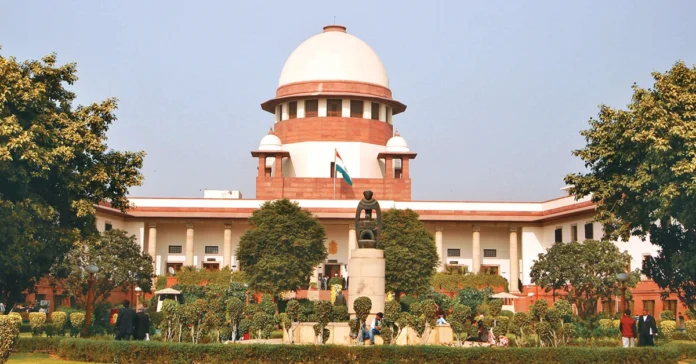The Supreme Court on Friday dismissed a batch of petitions seeking a review of its August 1 order that empowered the States to sub-classify the Scheduled Caste (SC) categories for granting more reservations to backward classes within the categories.
The Supreme Court on Friday dismissed the petitions challenging its August 1 order that allowed the sub-classification of Scheduled Castes (SC) categories to grant separate quotas for more backward classes within the categories.
The order passed in the chambers today said that the Apex Court, after perusing the review petitions, did not find any apparent error on the face of the record. No case for review under Order XLVII Rule 1 of the Supreme Court Rules 2013 had been established, it added.
A seven-judge Constitution Bench of the Apex Court, by a 6:1 majority, held on August 1 that the States could identify more backwards among the SC categories and sub-classify them for giving separate quotas within the quota.
The Bench of Chief Justice of India DY Chandrachud, Justice BR Gavai, Justice Vikram Nath, Justice Bela M Trivedi, Justice Pankaj Mithal, Justice Manoj Misra and Justice Satish Chandra Sharma delivered the verdict. In her sole dissent, Justice Trivedi held that Scheduled Castes cannot be sub-classified.
Out of the six judges, four made elaborate observations about the need to exclude the creamy layer from the Scheduled Castes, stating that the government must take steps to identify them.
The Bench had noted in the August 1 order that while allowing sub-classification, the State could not earmark 100 percent reservation for a sub-class.
The State was further directed to justify the sub-classification on the basis of empirical data regarding the inadequacy of representation of the sub-class.
The 7-judge Constitution Bench had considered essentially two aspects: whether sub-classification with the reserved castes could be allowed, and whether the correctness of the decision in E.V.Chinnaiah v. State of Andhra Pradesh, (2005) 1 SCC 394, which held that ‘Scheduled Castes’ (SCs) notified under Article 341, formed one homogenous group and could not be sub-categorized further.
The matter was referred to the seven-judge bench by a 5-judge bench in 2020 in the case State of Punjab vs Davinder Singh.
The five-judge bench observed that the judgment of the coordinate bench in E.V.Chinnaiah v. State of Andhra Pradesh, (2005) 1 SCC 394, which held that sub-classification was not permissible, was required to be reconsidered. The referring bench reason that ‘EV Chinniah’ did not correctly apply the decision of Indira Sawhney v. UOI.
The reference took place in a case concerning the validity of Section 4(5) of the Punjab Scheduled Caste and Backward Classes (Reservation in Services) Act, 2006. The provision stipulated that fifty per cent of the vacancies of the quota reserved for Scheduled Castes in direct recruitment shall be offered to Balmikis and Mazhabi Sikhs, subject to their availability, by providing first preference from amongst the Scheduled Castes candidates.
A Division Bench of the Punjab and Haryana High Court had struck down the provision in 2010, relying on the EV Chinnaiah judgment.
In the EV Chinnaiah verdict, the Bench of Justice N.Santosh Hegde, Justice S.N.Variava, Justice B.P.Singh, Justice H.K.Sema and Justice S.B.Sinha held that all the castes in the Presidential Order under Article 341(1) of the Constitution formed one class of homogeneous group and the same could not be further subdivided.
It said under Article 341(1), the President of India could officially designate certain groups as Scheduled Castes in any State or Union territory. The said designation of SCs for states has to be done in consultation with the Governor and then be publicly notified. The designation can be done amongst the categories of castes, races, tribes, or their sub-groups.
Any such legislation concerning Entry 41 of List II (State Public Services; State Public Service Commission) or Entry 25 of List III ( Education) of the Seventh Schedule to the Constitution would be violative of Article 14 of the Constitution, it added.


